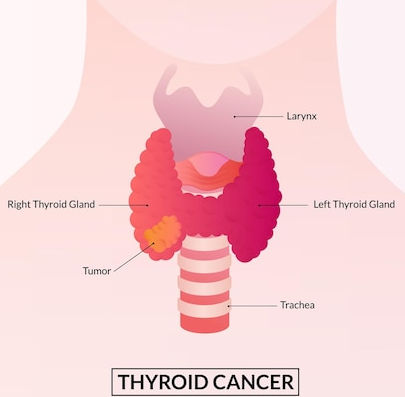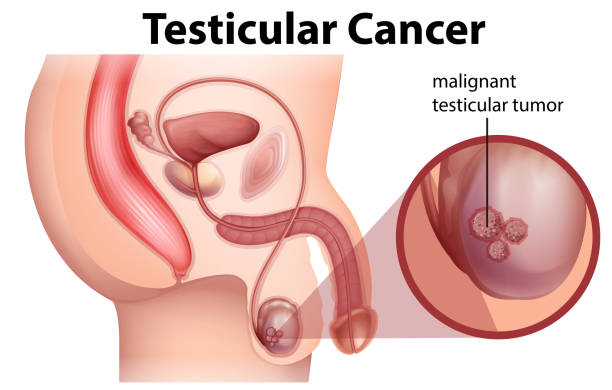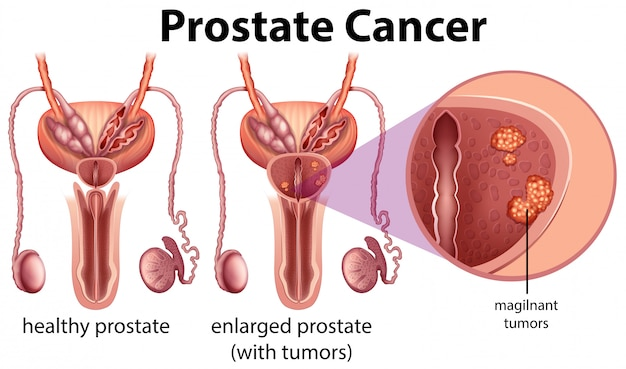- Have any questions?
- +91 90084 82284
- info@drsridharpsoncologist.com
Pathways to Healing: Exploring Spontaneous Cancer Remission

SBRT Radiation for Lung Cancer Treatment in India
January 5, 2024
Understanding Lung Cancer Metastasis to Adrenal Gland
March 1, 2024
Receiving a cancer diagnosis is among life’s toughest challenges. Your concerns as patients are valid, and finding hope is crucial. Amidst these challenges, there is a phenomenon that brings rays of hope—spontaneous cancer remission.
“This enigmatic occurrence, where cancer unexpectedly regresses without treatment, has become a beacon of possibility for those on their challenging journey,” says Dr. Sridhar Papaiah Susheela, a reputed radiation oncologist in India.
In this blog, we’ll discuss the phenomenon of spontaneous cancer remission in detail.
Understanding Spontaneous Cancer Remission
It is the unexpected regression or disappearance of cancer cells without treatment. These occurrences challenge our understanding of cancer and the body’s ability to heal itself. Ongoing research aims to uncover the underlying factors behind this phenomenon. This aids in the development of more precise and impactful treatment approaches.
Spontaneous cancer remission isn’t as rare as one might think. Let’s explore the prevalence.
How Common is Spontaneous Cancer Remission?

Statistics suggest that around 1 in 100,000 cancer patients may experience spontaneous remission of cancer. It is an uncommon occurrence, yet its impact on individuals is profound.
Research indicates that certain cancers exhibit higher rates of remission. For instance, neuroblastoma, a childhood cancer, has seen remission rates of up to 20%. However, these occurrences are not uniform across all cancer types. This highlights the phenomenon’s complexity.
The exact mechanisms behind spontaneous remission are unclear. Yet, researchers are exploring the role of the immune system. The activated immune system can be crucial in cancer regression without conventional treatment.
Book a consultation with Dr. Sridhar PS for personalized care strategies. Your unique path to healing begins with informed choices.
Timing is everything, especially when it comes to spontaneous cancer remission. Let’s explore when this hopeful turn of events tends to take place.
When Does Spontaneous Remission Occur?
Spontaneous remission is a rare phenomenon in the realm of cancer. It occurs when the body’s natural defences eliminate cancer cells without external interventions. These may include surgery, chemotherapy, or radiation. This unexpected event often intrigues patients and medical experts since the timing and triggers behind it remain elusive.
Spontaneous remission in cancer can happen during or after treatment. However, the exact timing varies. Sometimes, it occurs when a strong immune system, influenced by factors like a healthy lifestyle and positive mindset, fights and defeats cancer cells. Researchers are still studying why and when spontaneous remission occurs. This offers hope for those facing cancer challenges.
Let’s delve into the intriguing factors that contribute to this hopeful outcome.
What Causes Spontaneous Remission in Cancer?
The exact causes of spontaneous cancer remission are unknown. However, several factors may contribute to this remarkable occurrence. Here’s a quick breakdown:
- Immunological Response:
The body’s immune system plays a pivotal role. In spontaneous remission, a robust immune response targets and eliminates cancer cells. This may contribute to regression.
- Genetic Variability:
Individual genetic makeup can influence the likelihood of spontaneous remission. Some individuals may have genetic factors that enhance the body’s ability to self-correct cancerous anomalies.
- Tumor Microenvironment:
The complex interplay within the tumor microenvironment can impact spontaneous remission. Several factors may influence cancer regression. These include oxygen levels, nutrient supply, and immune cell presence.
- Psychosocial Factors:
Emotional and psychological well-being can affect the body’s resilience. Positive mental states may contribute to a more favourable environment for spontaneous remission.
- Treatment-Induced Effects:
Previous cancer treatments, such as chemotherapy or radiation, may stimulate the immune system. This can trigger spontaneous remission in some cases.
Insights from these factors are helpful. But, the unpredictable nature of spontaneous remission shows we need more research. Understanding these dynamics might lead to better, more focused treatments.
Embark on your journey to remission with expert guidance. Schedule a consultation with Dr. Sridhar PS for customized treatments.
Certain types of cancer have higher remission rates. Let’s explore which ones offer a glimmer of hope.
Which Cancers Have the Highest Remission Rate?
Cancer remission rates can vary across different types of cancer. Among the cancers exhibiting higher remission rates, certain types stand out.

- Breast Cancer :
Improved early detection and treatments boost remission rates in certain breast cancers. Tailored approaches make interventions more effective. The immune system can play a pivotal role in stopping the progression of breast cancer. This offers opportunities for spontaneous recovery from cancer.
- Hodgkin’s Lymphoma:
Hodgkin’s lymphoma is a cancer of the lymphatic system. It responds well to contemporary therapies, leading to significant remission rates. Advances in targeted treatments have further improved prognosis.
- Thyroid Cancer:

Thyroid cancer, when detected early and appropriately managed, often shows high remission rates. Surgery, radioactive iodine therapy, and other targeted treatments contribute to positive outcomes.
- Testicular Cancer:

Testicular cancer often responds well to treatments such as surgery and chemotherapy. It results in favourable remission rates. Regular screenings contribute to early detection and improved outcomes.
- Lung Cancer Spontaneous Remission:

Despite its aggressive nature, lung cancer has shown instances of spontaneous remission. The body’s natural defences sometimes mount a significant response against cancer cells. This can result in unexpected positive outcomes.
- Prostate Cancer:

Prostate cancer, known for its slow growth, has exhibited instances of spontaneous remission. The mechanisms behind this phenomenon are not fully understood. However, the body’s innate ability to mount a robust defence against cancer cells plays a crucial role.
- Lymphoma Spontaneous Remission:
Lymphomas are a diverse group of blood cancers. They have shown various responses, including spontaneous remission. The immune system can trigger a positive shift in the battle against lymphoma. This can lead to unexpected periods of remission.
- Follicular Lymphoma Spontaneous Remission:
Among lymphomas, follicular lymphoma is a subtype associated with spontaneous remission. In some cases, the immune response controls or eliminates the cancer cells. This offers hope to those grappling with this particular form of lymphoma.
Remember, spontaneous remission is not a universal outcome for all cancer cases. However, these instances underscore the human body’s resilience and the potential for unexpected positive turns. Individuals facing cancer diagnosis must stay informed. They should consult healthcare professionals and embrace a comprehensive approach to their care.
Discover the possibilities of remission, even in the face of advanced cancer stages. Let’s break down the potential outcomes.
Can Stage 4 Cancer go into Remission?
The possibility of Stage 4 cancer remission is a complex and multifaceted subject. While spontaneous remission is rare, it is not unheard of. Studies suggest that around 1% of cancer patients experience some degree of remission.
Dr. Sridhar PS emphasizes that the potential for remission varies based on factors like:
- cancer type
- patient’s health
- response to treatment.
Recent advancements in targeted therapies and immunotherapies have improved the chances of remission, even in advanced stages.
Remember, complete remission doesn’t guarantee a permanent cure. It offers patients a chance for an improved quality of life. Regular monitoring, adherence to treatment plans, and a positive mindset can help achieve and sustain remission.
Patients should consult their oncologist to understand their specific case. They should also discuss potential treatment options and realistic expectations for remission.
The journey doesn’t end with remission. Let’s explore life beyond cancer and the prospects of a fulfilling, long-lasting future.
Can You Live a Long Life After Cancer Remission?

Achieving cancer remission opens the door to a life filled with possibilities. In India, over 67% of cancer survivors enjoy a long and fulfilling life post-remission. The key to maintaining good health is to:
- monitor your health regularly
- maintain a balanced lifestyle
- pay attention to your body’s signals
Regular follow-ups with healthcare providers are crucial to track potential issues early on. Many patients can live healthy, active lives with advanced treatments and careful post-remission monitoring.
Ready to embrace a vibrant life post-cancer? Consult Dr. Sridhar PS and embark on a personalized post-remission care plan. Your journey to long-lasting well-being begins now!
Conclusion
Spontaneous cancer remission remains a captivating chapter in the fight against cancer. Although its timing is uncertain, it offers hope in conjunction with traditional treatments. Embrace the possibilities, stay informed, and let hope pave the way in the quest for health and healing. Trust the expertise of specialists like Dr. Sridhar PS to navigate the complexities of cancer, fostering optimism and resilience.
Ready to explore possibilities in your cancer journey? Book a consultation with Dr. Sridhar PS for personalized insights and expert care. Your path to hope and healing begins here.
Let’s address some common questions about cancer remission in the FAQs section.
FAQs:
Q: Which cancer is not curable?
A: Some cancers, like pancreatic cancer and glioblastoma, pose significant challenges in terms of curability. Yet, advancements in research and treatment continue to redefine outcomes.
Q: What is the stage after remission?
A: Post-remission, the next stage is surveillance. Regular follow-ups and screenings help detect any potential recurrence early. This enhances the chances of successful intervention.
Q: Has anyone fully recovered from Stage 4 cancer?
A: Recovery or spontaneous remission stage 4 cancer is rare but not impossible. Exceptional cases exist, often involving aggressive treatments and the individual’s response to therapy. However, each case is unique.
Q: Which cancer can be 100% cured?
A: Testicular cancer, Hodgkin lymphoma, and some early-stage breast and prostate cancers have high cure rates. Timely detection and targeted treatments can contribute to successful outcomes.
Q: Can lifestyle changes influence cancer remission?
A: A healthy lifestyle, including balanced nutrition and regular exercise, can complement medical interventions. It can have a positive impact on cancer outcomes.
Q: How does stress affect cancer progression?
A: Chronic stress can impact the immune system and influence cancer progression. Relaxation techniques and emotional support may help manage stress during cancer treatment. This can contribute to overall well-being.
Reference links:
https://my.clevelandclinic.org/health/articles/24673-cancer-remission
